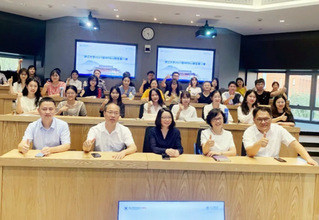题目: Should Manufacturers or Retailers Handle Consumer Product Returns?
时间:2024年12月5日上午 10:00
地点:浙江大学紫金港校区yl23411永利A423
主讲人: 马步青 特任副教授,中国科学技术大学
主持人:鲍丽娜 百人计划研究员,yl23411永利
主讲人简介:

马步青,中国科学技术大学特任副教授,2020年于中国科学技术大学获得博士学位,2017年至2019年在美国伊利诺伊大学香槟分校联合培养。主要研究方向为市场营销与运营管理和金融市场的交叉领域。研究课题主要涉及线上服务决策(如产品退货、销售渠道和商业模式)、消费者信贷、信息共享和质量信号等。博士期间,曾获得美国运营管理学会(POMS)新兴经济体博士生奖、中科院院长特别奖,院长奖,墨子津贴等。多篇论文被《Production and Operations Management》期刊接受,另有多篇论文在《Marketing Science》和《Production and Operations Management》期刊上修改。担任《Production and Operations Management》和《Manufacturing & Service Operations Management》期刊审稿人。
讲座摘要:This paper delves into a manufacturer's strategic decision-making regarding the management of product returns when it sells a product to consumers through a retailer but chooses to handle consumer product returns directly or delegates this responsibility to the retailer. When product returns are delegated to the retailer, the retailer sets the consumer return policy and handles returned products. By contrast, when the manufacturer handles returns directly, it sets the consumer return policy instead of the retailer. Consumers are heterogeneous in their product valuations and hassle costs associated with returning products. First, our results indicate that when the manufacturer handles returns directly, it can opt to offer consumers a money-back guarantee (MBG) policy compared to delegating returns to the retailer. This contrasts with conventional wisdom, suggesting that the retailer, who is closer to consumers, may provide better services in managing returns. Second, the manufacturer can benefit from directly managing consumer returns, even in the absence of a salvage value advantage or a hassle cost advantage. This is because by handling product returns, the manufacturer opts to offer MBG to consumers, which increases the wholesale price and expands demand. Third, both of the manufacturer's decisions—managing returns directly or delegating them—can benefit not only itself but also the retailer and consumers, creating a win-win-win situation. It highlights the positive ripple effects that can emerge from such a strategic decision. Lastly, we consider the effects of several other factors, revealing that the impacts of salvage values and consumer hassle costs on return channel decisions are the opposite. Our paper underscores the importance of the manufacturer's direct return management, demonstrating that an upstream manufacturer engaging in consumer service activities can lead to better services and greater profits for firms.





